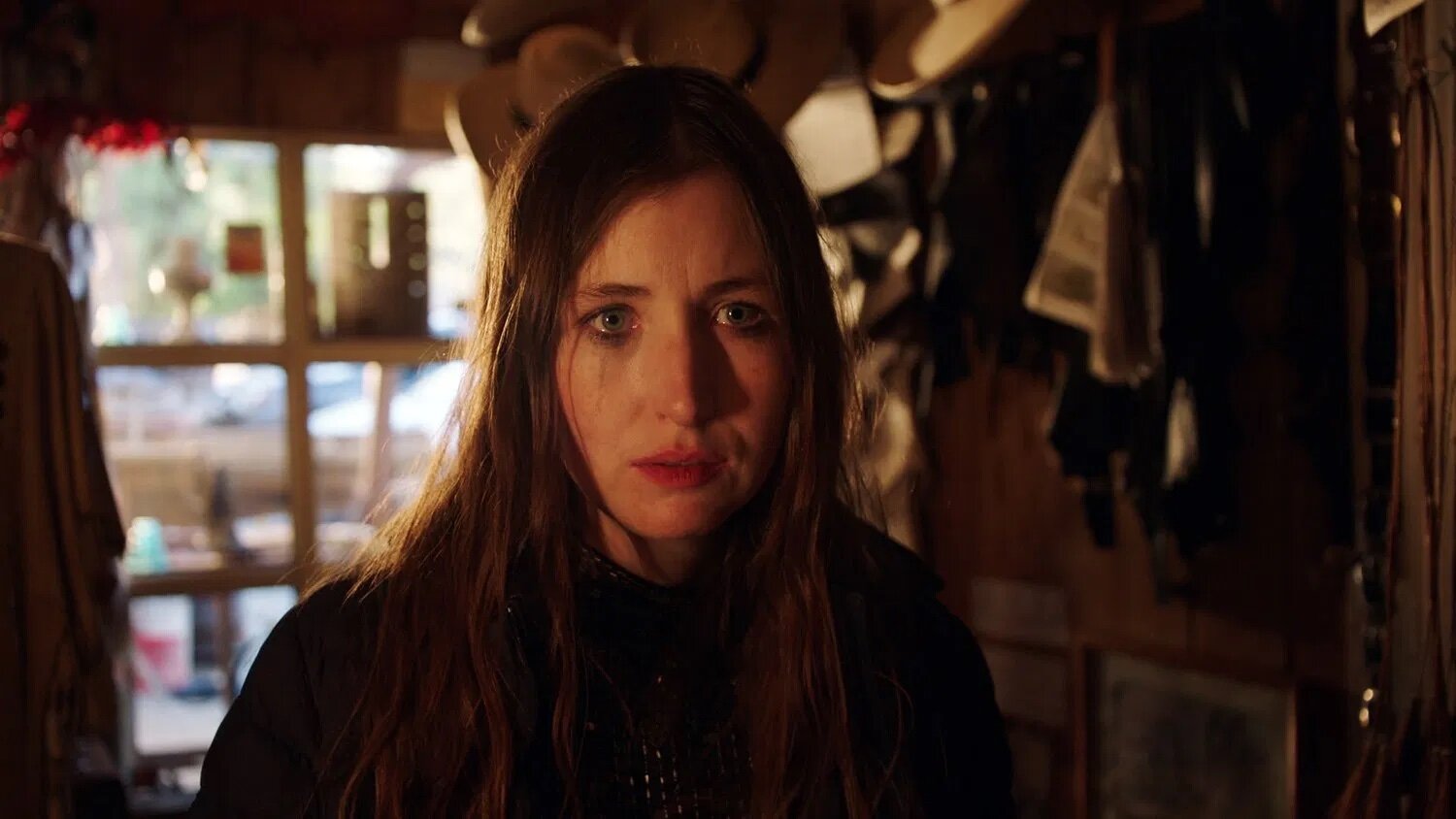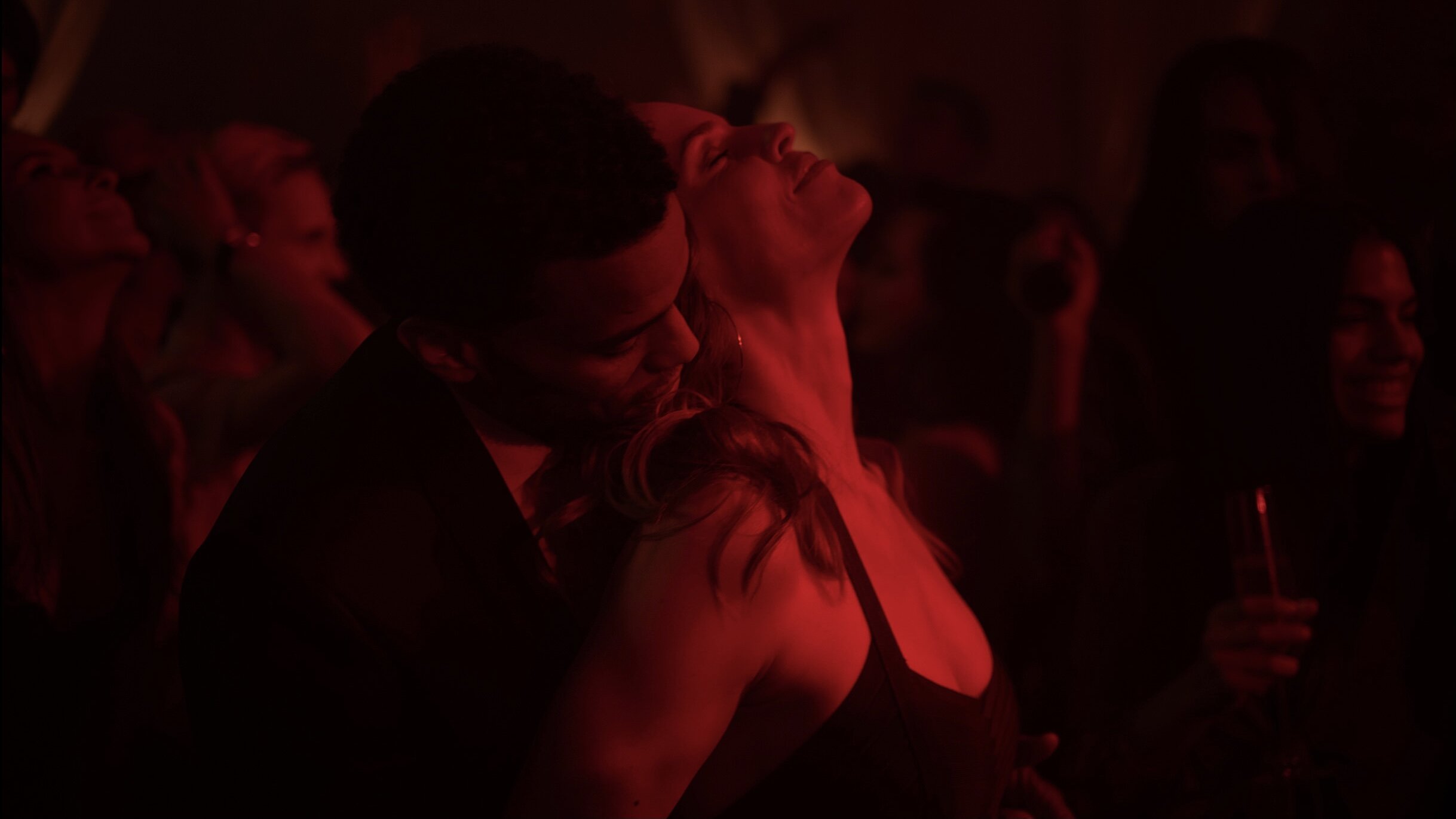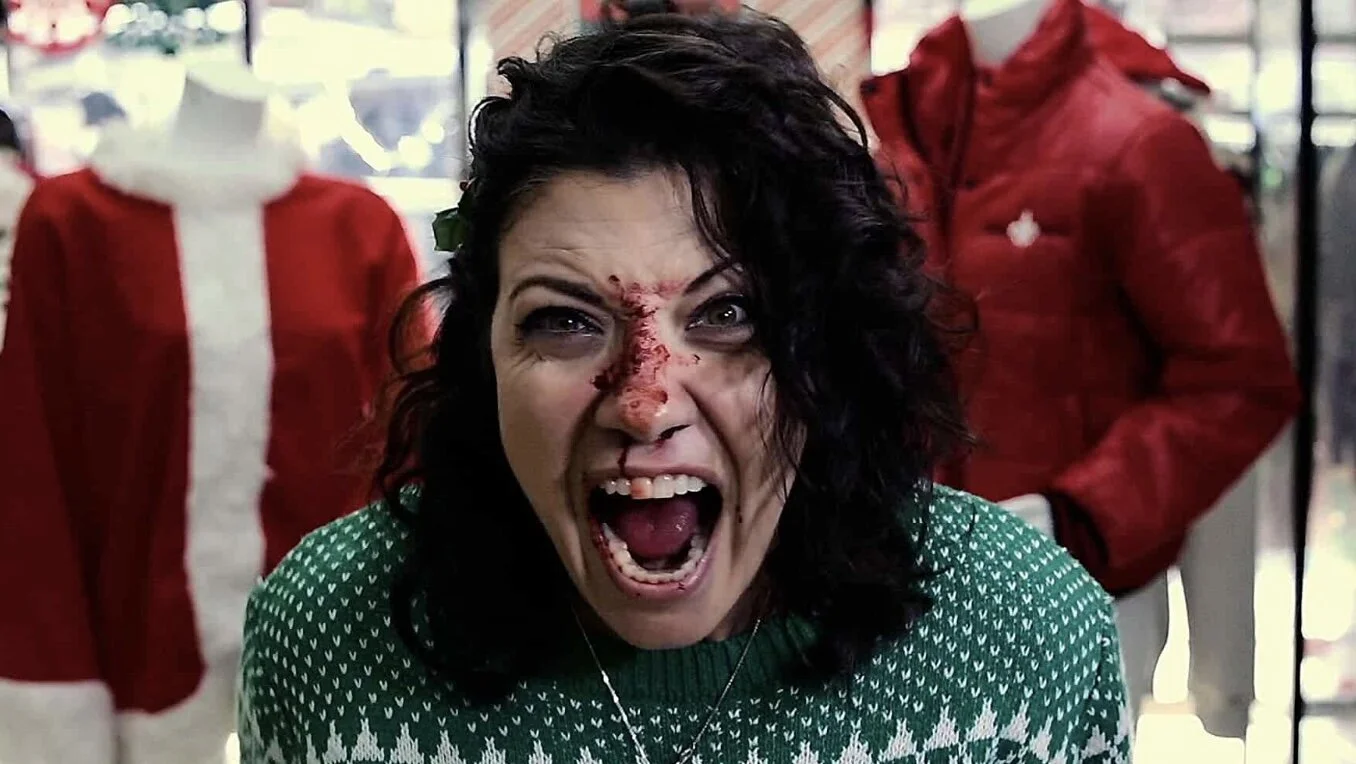Film Review — "She Dies Tomorrow"
A couple years ago, before I was properly medicated for depression, I experienced many days where I wished to be dead. That phrasing may seem awkward to some of you: wishing “to be dead,” as opposed to wishing “to die.” But there is a subtle yet important distinction between the two. In my bluer periods—and there were many—I would often find myself wanting to no longer exist. Passively. I never actively planned, or attempted, to end my own life. I just wanted it to happen. So, if someone could’ve pulled a magical lever with the power to disintegrate me, I would have welcomed it, on those days. Likewise, if I were to have been overcome with a divine notion that I was absolutely going to be dead the next day, I may have been filled with euphoria. Such a reaction probably sounds insane to some of you, but, I guarantee you, positive-leaning feelings about imminent death are more common than you might think. And that is, in part, what Amy Seimetz so deftly explores in her film She Dies Tomorrow.
Existential dread is sort of my beat. I’m very familiar with that specific corner of anxiety, as are a lot of people I know. And yet when that disquietude once again rears is shadowy head, I usually forget that I’m not the only one. An impression of being utterly, soul-crushingly alone—even while surrounded by others, both literally and figuratively—routinely sets in during such mental states. Then my mind goes in every direction: I know I should reach out for help, but I cannot allow myself to do so. I want everyone else to feel what I’m feeling, but I would never purposefully bestow that on anyone. I yearn for the end of my life, but I could never end it myself… All these things exist on a spectrum; everyone experiences them differently—and not the same way every time. Even the spectrums have spectrums.
The characters in She Dies Tomorrow are not alone when it comes to their sense of impending doom, certainly not by the end anyway. In this world that Seimetz has created, existential dread is contagious; it actually spreads from person to person like an airborne virus. The film opens with a woman named Amy, played by Kate Lyn Sheil, who has just moved into a new house, having recently escaped an abusive relationship. And she’s not okay. And understandably so. But there’s something more. She knows she’s going to die the next day. For her and for everyone else overcome with the notion, it’s indisputable. Indiscriminately, the contagion moves from person to person. Several characters become infected, but going through the same thing does not mean that they go through it the same manner. Spectrums upon spectrums, remember?
I love that everyone in She Dies Tomorrow processes their realization in their own specific way. I mean, how frequently does the question “If the world were to explode tomorrow, how would you spend your last hours on Earth?” come up in conversation? Almost everybody has their signature go-to answer, but it’s important to note that an answer to this hypothetical question is merely that—a hypothetical answer. How we would truly respond may not align with how we think we’d respond…
And perhaps the most amusing response to watch unfold belongs to Jane Adams, who enters another stratum. I was entirely hypnotized by her. Even before Jane (her character’s name is Jane too) catches the dread that’s going around, she is instantly relatable. In the opening few minutes, she is preparing to attend a party she doesn’t want to go to, that she was told to bring salad to, even though she’s not a salad person, and she doesn’t even like the person the party is for. Relatable content to the max. Adams has been an MVP indie actress for a long time, so it brought me a lot of joy to see her flex her eccentricities in a high-concept horror setting. Her haunting performance will probably go down as one of the more overlooked of last year.
Seimetz does not offer a reason for why this sickness is spreading. She doesn’t explain where it came from, or if it will ever stop. Because, well, it doesn’t matter. Not only because the film is an exploration of how separate individuals confront, or embrace, the same circumstance but because mental illness does not always have a clear impetus. Nor does an ill mind follow a straight path.
She Dies Tomorrow sort of wanders in a fashion that resembles a searching mind. The narrative does not utilize a traditional plot structure. This technique works for this film, given its conceit and most of all its mood. Because this film is moooooody. Amy Seimetz penetrated and unfurled my psyche. Even after a year on meds, I still have small bouts of blueness. They’re fewer and further between than they used to be, and they don’t last as long or cut as deeply as they used to, but they still sometimes occur. And She Dies Tomorrow threw me into one that lasted a few days, which I strangely say as a compliment. I mean, that’s evocative as fuck filmmaking. Thank goodness for Wellbutrin.
The film’s not a total downer, though, despite the premise and the areas I’ve chosen to focus on so far. Katie Aselton’s Susan spends an admirable and much needed amount of time talking about the horniness of dolphins. Dolphins fuck a bunch, I guess. It seems to be her favorite topic as of late, to the chagrin of her mildly embarrassed husband Jason, played by the always welcome and very hot Chris Messina, who looks remarkable when bathed in blue light. So too do Tunde Adebimpe and Jennifer Kim, a couple experiencing the contagious dread together at a time when their relationship is already well beyond its expiration date—and they’re both so devastatingly good in their roles as well.
This was my first film of 2021. So, you could say I kicked off the year on a gloomy note, but I honestly wouldn’t have it any other way. After all, I’m a pretty morose person. And I, like the Amy character here, have also wondered how my corpse could be put to good use after I’m no longer using it. Her idea of being turned into a leather jacket is quite metal, and I respect the practicality. Personally, I’d like my flesh and hair to be used as the binding for a book similar in appearance to the one from The Evil Dead. My blood would be the ink, obviously—only the content of the volume wouldn’t be hellish at all, as a joke. Like, could you imagine an edition of, say, Little House on the Prairie, but the cover is made out of my ass?!
See, I may carry around a dark grey cloud of sadness wherever I go, but my secretly-sunny disposition usually manages to shine through!




